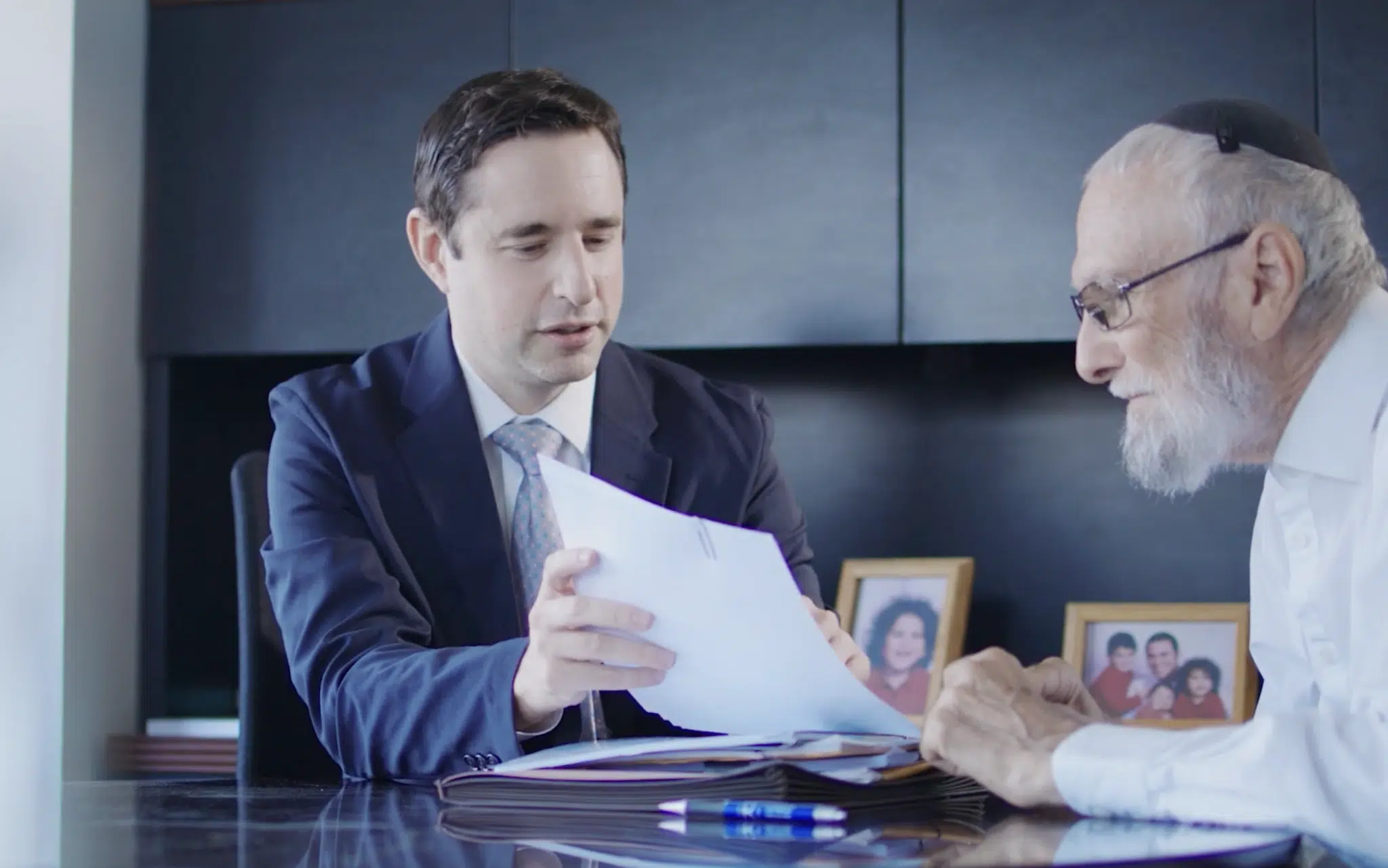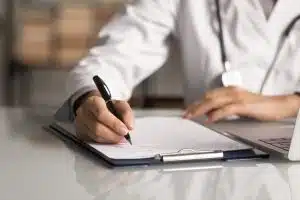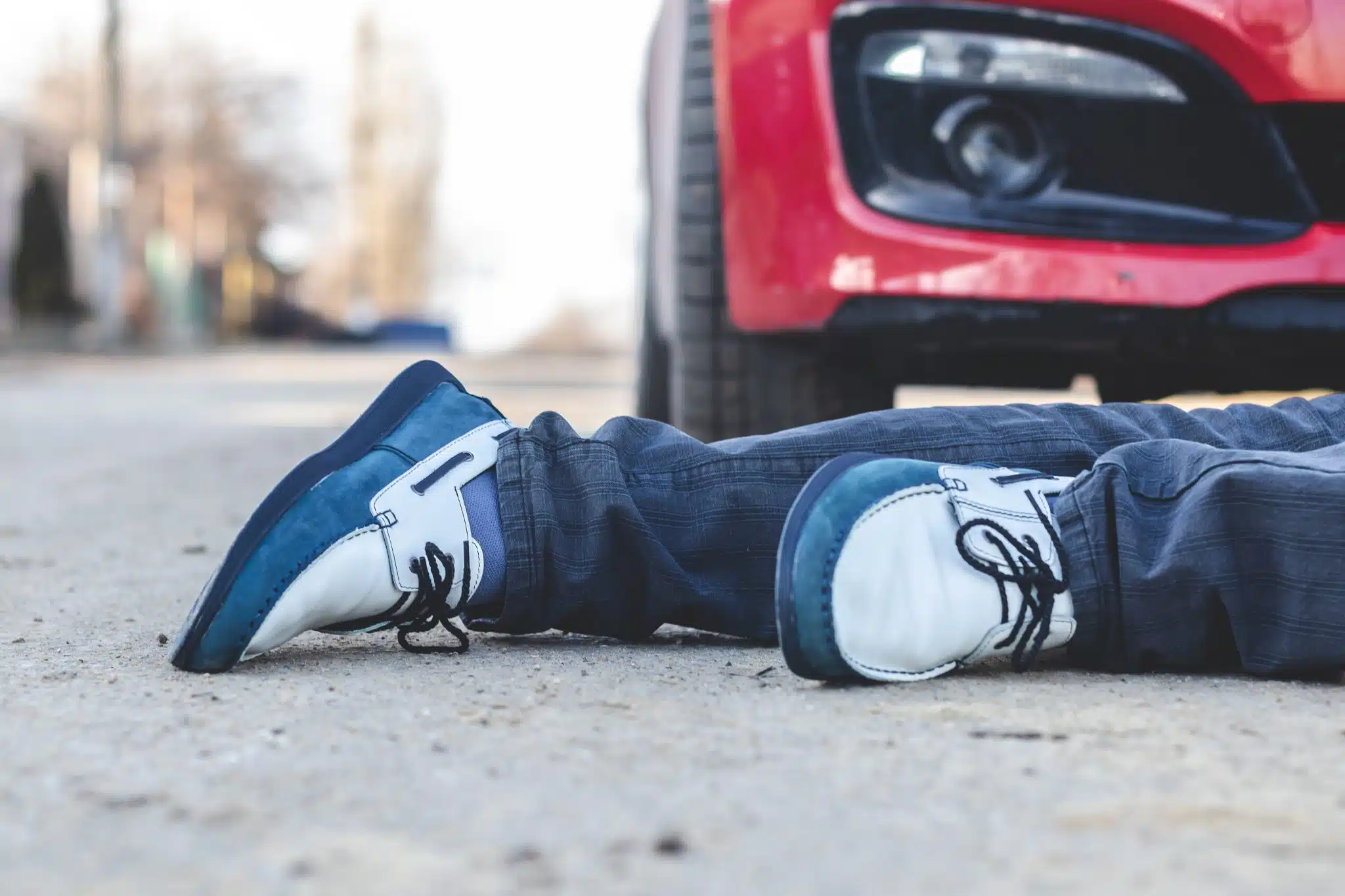
An accident has instantly turned your world upside down. You now face a long road to recovery, an overwhelming barrage of medical bills, and missed work as you struggle to heal. The physical, emotional, and financial impacts can feel devastating.
But, if someone else’s negligence caused your accident, you may recover compensation for your damages. You shouldn’t have to shoulder the heavy burden and high costs alone. A personal injury claim allows you to hold the at-fault party accountable and recover money for the full extent of the harm you’ve suffered.
However, insurance companies aren’t just going to hand over a big check. They’re committed to protecting their own profits by paying out as little as possible on injury claims, often using tactics that take advantage of vulnerable accident victims. You’ll need strong evidence, legal knowledge, and skilled representation to win the maximum compensation you deserve.
The first step is scheduling a free case evaluation with an experienced New York City personal injury attorney. To make the most of this crucial consultation, you should gather several key items and documents in advance.
Table of Contents
- Police Reports Tickets
- Medical Records Bills
- Photos Videos
- Paystubs Proof of Income
- Correspondence
- Personal Notes
- A List of Questions
- Contact Our Personal Injury Lawyer Today for Your FREE Case Evaluation
Police Reports & Tickets
One of the most important documents to bring is the police report from your accident if one exists. In a car accident, for example, the responding officers will generate an official crash report detailing their observations and findings.
This report will contain key facts like:
- Date, time, and location of the crash
- Contact and insurance info for all involved parties
- Statements from drivers, passengers, and witnesses
- Citations or violations issued
- Opinions on fault
- Road, lighting, and weather conditions
- Diagram of the accident scene
The police report serves as an objective third-party account of what occurred. Insurance companies rely heavily on these reports when determining fault and processing claims. If the report indicates the other party was at fault, it will greatly bolster your case.
In some accidents, the police may also issue traffic citations to the at-fault party for speeding, running a red light, or driving under the influence. If police ticketed the other driver, bring a copy of their citation. This will serve as official documentation of their negligence or recklessness.
If police did not investigate your accident, try to obtain and bring any other official reports that were generated, such as an incident report from a business or property manager if you were injured in a slip and fall or workplace accident. The more formal documentation you have, the better.
If you can’t or don’t know how to obtain this information, your lawyer can get it for you.
Medical Records & Bills
The core of your injury claim will be to demonstrate the nature and extent of your injuries, as well as the costs and impacts they have had on your life. This is done primarily through medical documentation.
Bring any medical records you have related to the diagnosis and treatment of your accident-related injuries, including:
- Ambulance and EMT reports
- Emergency room records
- Hospital admission and discharge papers
- Doctor’s notes and office visit summaries
- Imaging results like X-rays, CT scans, MRIs
- Blood test panels and lab work
- Surgery reports
- Physical therapy notes and evaluations
- Mental health treatment records
- Prescription medication history
Basically, bring anything and everything documenting your injuries and medical care. The more complete your records, the better we can prove the extent of your harm. Be sure to continue all treatment and follow-up appointments recommended by your doctors. Insurance companies use gaps in treatment to argue your injuries are not that severe.
You’ll also want to bring documentation of your medical expenses:
- Ambulance and emergency room bills
- Hospital bills
- Copays for doctor visits
- Cost of medical equipment like crutches, braces, and home modifications for disabilities
- Prescription costs
- Mileage and travel expenses for medical appointments
Don’t worry if you don’t have the funds to pay these bills out of pocket. As your attorneys, we can send the providers a letter of protection asking them to continue treatment in exchange for payment from your eventual settlement or court award.
Bring copies of all bills and receipts so we can calculate your total medical expenses and ensure you are fully reimbursed.
Finally, ask your doctors to provide written opinions on your injuries, required future treatment, and permanent disabilities and impacts on your life. A strong opinion from a medical expert on the severity and long-term consequences of your injuries is very valuable in proving damages.
Photos & Videos
A picture is worth a thousand words, as the saying goes. Photographs and videos provide vivid visual evidence to support your claim.
Bring any photos or videos you have of:
- Your injuries (e.g., cuts, bruises, casts, surgical scars) over time as they heal
- Damage to your vehicle
- Accident scene (e.g., debris, skid marks, road conditions)
- Defective product that injured you
- Hazardous condition that caused your slip and fall
- Receipts for injury-related expenses
It’s best to take these photos and videos as soon as possible after the accident so they document the full extent of your injuries and damages before the healing process begins. Take photos of your injuries as time passes to show the full impact.
Even if you don’t have photos from the immediate aftermath, take and bring pictures that show the current status and severity of your injuries and the effects on your life (e.g., not being able to lift your child or participate in beloved hobbies). Videos can also be powerful. Consider keeping a video diary where you discuss your pain levels, limitations, and the mental/emotional impacts.
If photos or videos of the accident itself or the immediate aftermath exist, perhaps from traffic or surveillance cameras, we can help you obtain those. The more visual documentation that supports your side of the story, the better. However, only provide these items to your lawyer.
Do not post photos/videos of your accident or injuries on social media, as insurance companies can use those posts against you.
Paystubs & Proof of Income
If your injuries have caused you to miss work, you are entitled to compensation for those lost wages as part of your damages.
Bring documentation to show your normal wages and the specific time you have missed, such as:
- Recent paystubs showing your regular earnings
- Timesheets showing missed shifts
- Letter from your doctor or medical facility indicating your medical absence from work
- Letter from your employer confirming your time out of work
If you are self-employed or have irregular income, bring your tax returns and any documents showing your normal income and business expenses. The goal is to demonstrate the amount of income you have lost due to your inability to work because of the accident.
Similarly, if your earning capacity has been diminished going forward because of permanent injuries or disabilities, bring proof of any reduced hours, demotions, or job changes the accident forced you to make.
Keep a journal detailing how your injuries have negatively impacted your productivity and job performance. We can use this evidence and expert analysis to calculate the future income you will lose over your lifetime as part of your damages.
Correspondence
Bring copies of any correspondence you’ve had with the other parties in your case, including:
- Letters from the at-fault party’s insurance company
- Emails discussing the accident with the property owner or manager
- Notices informing your employer of your medical absence
- Letters from your own insurance company, especially if you have med pay or UM/UIM coverage
Do NOT give the other side’s insurance adjuster a recorded statement, sign any documents, or accept any settlement offers until you have consulted an attorney. The insurance company’s goal is to pay out as little as possible on your claim, and they will use anything you say against you.
Once you hire us, you can simply refer them to us, and we will handle all communications and negotiations on your behalf.
Keep a log of any phone calls you receive about your accident: the date, who called, and what was discussed. Take notes during any in-person conversations. The more details you can provide your lawyer about these interactions, the better we can protect your rights and respond to the other side’s tactics.
If you receive any documents, offers, or checks from an insurance company or at-fault party, bring those to your lawyer immediately before signing or cashing anything.
Personal Notes
Begin keeping a personal journal where you write detailed notes about how your injuries have impacted your day-to-day life. This can serve as valuable evidence of the physical and emotional distress you’ve experienced.
Some questions to consider:
- What physical pain and symptoms are you experiencing? Where is the pain, what does it feel like, how often does it occur, how severe is it on a scale of one to 10?
- What activities do your injuries prevent you from doing or participating in? What hobbies, sports, and social events have you missed? What household tasks are you unable to perform?
- How have your injuries impacted your close relationships with family and friends? Are you unable to care for or play with your children like before? Has your marriage and intimacy with your partner suffered?
- What treatments are you undergoing, and how time-consuming, painful, or difficult are they? How have your injuries and treatment regimen dominated your daily life?
- How have your injuries affected you emotionally and mentally? Are you experiencing anxiety, depression, loss of sleep, irritability, loss of enjoyment of life?
The more specific details and stories you can provide, the more compellingly we can convey your damages to the other side and fight for a higher settlement. We can also use this information to paint a vivid picture to a jury of what you’ve gone through, which can lead to greater awarded damages at trial if necessary.
Ask trusted family and friends to write brief statements about how they’ve seen your injuries hurt your life as further proof. An outside observer may not always see the accident’s effects on your life, so documentation of your subjective experience and personal journey can improve your case.
A List of Questions
Preparing a list of questions for your initial consultation will make the most of the meeting and ensure you have all the information needed to make important decisions about your case.
Here are some key questions to ask your personal injury lawyer during the free case evaluation:
- Based on what you know so far, what do you think are the strengths and weaknesses of my case? What challenges do you foresee?
- What is your assessment of the potential value of my claim? What types of compensation can I recover, and what do you think my case is worth?
- How long do you expect it will take to resolve my case through settlement or trial if necessary?
- What is your strategy and plan for handling my case? What are the key next steps?
- How often will you update me on the status and progress of my case? What is the best way for me to communicate with you and your staff if I have questions?
- Have you handled cases like mine before? What were the outcomes?
- Will you be the attorney personally handling my case on a day-to-day basis? If not, may I meet the lawyer who will?
- What is your fee structure? What out-of-pocket case expenses should I anticipate?
- What is the statute of limitations (legal deadline) for my claim, and are there any immediate actions I need to take to protect my rights?
- What can I do to help strengthen my case? What actions should I avoid?
Bring a notebook to jot down the attorney’s responses. A lawyer should take the time to listen closely to your story, clearly answer your questions, and give you sound advice and a game plan.
The consultation is also your chance to see if you feel comfortable with the lawyer’s communication style and confident in their ability to advocate strongly for you. Bring up any other concerns. Your lawyer is there to give you clarity, guidance, and peace of mind during a stressful time. The relationship should be built on open communication and trust from the very beginning.
Contact Our Personal Injury Lawyer Today for Your FREE Case Evaluation
Strong documentation and evidence are key to maximizing the value of your personal injury claim. Gathering and bringing the items described above to your free case evaluation will allow our skilled legal team at Rothenberg Law Firm LLP to build the most robust case possible on your behalf.
Remember, the insurance companies have vast resources and armies of lawyers fighting to pay you as little as possible. With over 50 years of experience and billions recovered, we have the resources and track record to take on the big insurance companies and win you the compensation you deserve.
We understand that this is a difficult, overwhelming time in your life as you struggle to recover from your injuries. Let us handle the stressful details of your claim and fight tirelessly for your rights so that you can focus on healing.
Contact us today at (800) 624-8888 or through our online form for your free, no-obligation case evaluation. Be sure to bring the items outlined above so that we can hit the ground running on your claim. The sooner you reach out, the better we can protect you and secure the best possible outcome in your case.





